At-Will Employment
In Indiana the general rule is that employment is terminable at will by either party in the absence of an employment contract for a definite period. Employees may be terminated for any reason not expressly prohibited by federal, state, or local law.
Courts recognize claims for breach of implied contract based on a written promise or handbook provision, but only if a definite duration of employment is promised. Employers may avoid implied contracts by including a disclaimer reserving management discretion to terminate at-will. Employers may avoid implied contracts by having employees sign an express written at-will agreement and by including an express disclaimer reserving the company's right to deviate from policies in the employee handbook.
For comprehensive training on maintaining at-will employment, visit EmployerESource and explore our training webinars. These resources offer valuable information for business owners and managers seeking to stay informed and compliant.
For any questions about at-will employment and how to preserve this relationship, please contact EmployerESource. We’re here to provide expert guidance and support.
Final Wages
Under Indiana law when an employee is separated from employment—whether due to termination, resignation, or layoff—their unpaid wages or compensation must be paid on the regular payday for the pay period in which the separation occurred.
In cases of work suspension due to an industrial or labor dispute, all earned and unpaid wages must also be paid on the next regular payday without reduction or abatement.
Additionally, if there is a dispute regarding wages, the employer is legally required to notify the employee of the amount they agree is owed and pay that amount unconditionally within the required timeframe. Accepting this partial payment does not waive the employee’s right to pursue the rest of their claim.
If you have any questions regarding this law, your final paycheck, or wage disputes, please contact EmployerESource or download the Employee Handbook for full, state-specific policies and additional guidance.
Garnishments of Pay
Under Indiana law, an employee’s wages may be withheld in certain legal situations. Garnishment refers to a court-ordered withholding of wages to pay a debt or judgment.
Employers are allowed to charge a one-time fee for processing garnishment orders, equal to either $12 or 3% of the total garnishment amount—whichever is greater. This fee is split equally between the employee and the creditor, with the employee’s portion deducted directly from their earnings.
Support withholding refers specifically to child support deductions as required by law. Depending on whether the employee is supporting another spouse or dependent child, up to 50–60% of disposable earnings may be withheld for child support. In these cases, employers are allowed to deduct a $2 fee from the employee’s wages each time a child support deduction is made.
If you have any questions about garnishment or support withholding, please contact EmployerESource or download the Employee Handbook for state-specific policies and additional resources.
Jury Duty
In Indiana, employees who are called to serve on a jury are protected from adverse employment actions as long as they notify their employer of the jury summons within a reasonable time. Under Indiana law employers may not fire, discipline, or penalize employees for responding to a jury summons or serving on a jury. Employees also cannot be forced to use vacation, annual, or sick leave for time spent on jury-related duties.
If your business has 10 or fewer full-time employees, and more than one employee is summoned at the same time, the court may reschedule one of them to avoid staffing conflicts—so you're not left short-handed.
Have questions about complying with this law? Contact EmployerESource for expert guidance on handling jury duty leave and other employment policies. You can also download our customizable employee handbook with Indiana-specific policies to stay compliant and protect your business.
Sick Leave
All Indiana employers are required to provide paid sick leave that begins accruing on an employee's first day of employment. Employees accrue paid sick leave at a rate of one hour for every 30 hours worked, regardless of whether the hours are paid at regular or overtime rates.
Employees may begin using accrued sick leave on the 91st calendar day after their start date. However, sick leave earned during a pay period may not be used in that same pay period and must be taken in one-hour increments. The maximum paid sick leave an employee can use is 40 hours per calendar year, though unused hours may be carried over to the next year with no limit.
Paid sick leave can be used for a variety of reasons, including:
Personal illness, injury, or medical appointments.
Caring for an ill or injured family member.
When a school or childcare facility closes due to a public health emergency.
Business closures resulting from a public health emergency.
Addressing issues related to domestic or family violence.
Attending school-related meetings regarding a child’s health or disability.
Complying with quarantine during a public health emergency.
If the need for paid sick leave is foreseeable, the employer may require a written request at least 7 days in advance. For unforeseeable situations, employees must provide as much notice as is practicable. If an employee is absent for three or more consecutive days, the employer may require certification, which can be submitted after the employee returns to work.
If you need help implementing a compliant sick leave policy, revising your employee handbook, or have questions about any of the provisions outlined above, please contact EmployerESource. Our team is here to support your compliance efforts and ensure your workplace remains legally sound and employee-friendly.
You can also download the Employee Handbook for full, up-to-date policies specific to your state.
Vacation
Creating a clear and legally sound vacation policy is essential for maintaining compliance and avoiding misunderstandings. In Indiana, while employers are not required to provide vacation benefits, once you do, you must follow the terms of your policy or employment contract. That includes rules on accrual, payment upon separation, caps, and even “use-it-or-lose-it” policies.
EmployerResource is here to help! Whether you're starting from scratch or revising an existing policy, our experts can guide you through the process—making sure your policy is compliant, fair, and fits your business needs.

